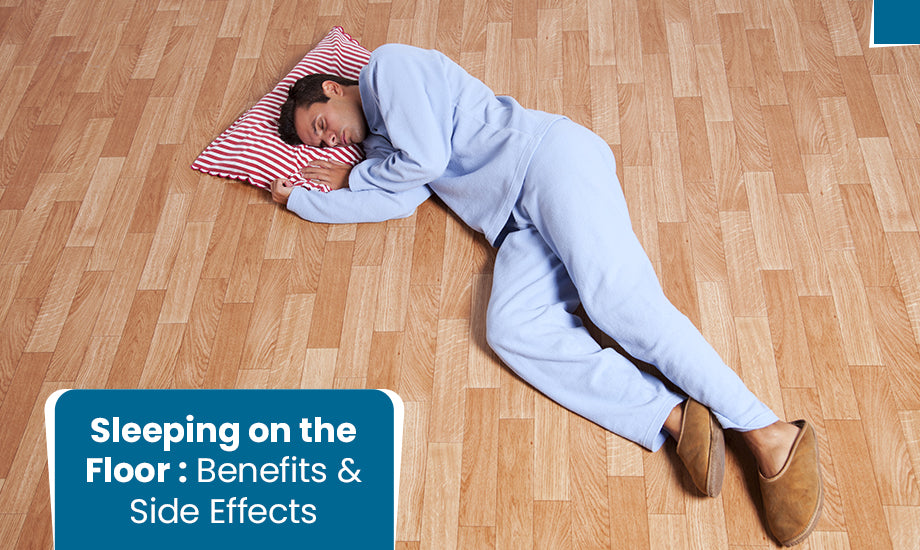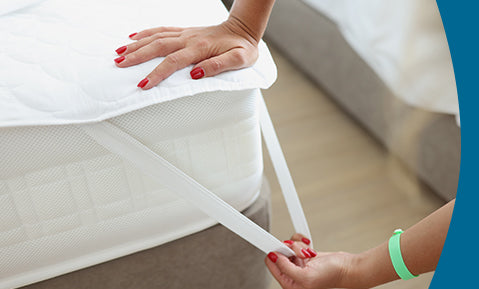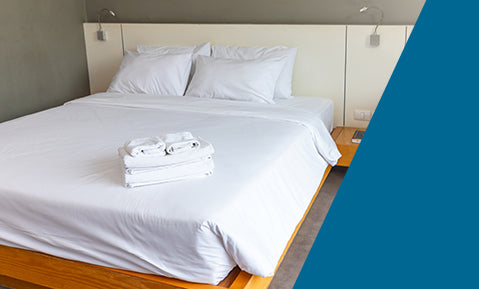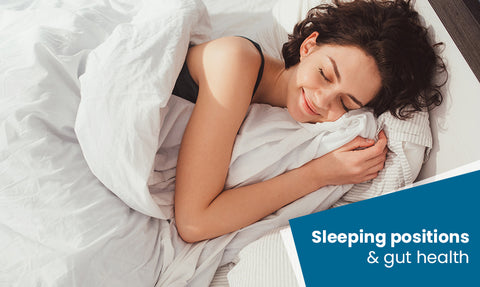
Most people prefer to sleep on the floor. In some cultures, sleeping on the floor instead of on the bed is quite common. There are, in fact deeper personal causes and traditional reasoning behind the idea of giving your body the needed rest, on the Floor. Sleeping on the floor will allow a person to live a more minimalist lifestyle, which most prefer. The Japs follow it.
Some people may sleep on the floor because they need more space or budget for a full-size bed. Regardless of what initially sparked your interest in sleeping on the floor, you're likely to wonder if it is good for you. If you think about sleeping on the floor, it might be helpful to understand the pros and cons before making a decision.
What are the Benefits of Sleeping on the Floor?
Potential benefits of sleeping on the floor include a cool sleep temperature. It gives you relief from back pain and better posture.
The cool temperature can be quite comfortable. Heat rises, so it follows sleeping on the floor. When the floor is cold, It reduces your body heat faster. For those who sleep hot, it can make sleep more comfortable during the hot summer. People generally sleep better in a cooler environment.
It can improve your sleep posture

Poor posture can contribute to back pain and lead to problems like reduced flexibility and an increased risk of injury. Good posture helps promote your spine's natural curvature.
Sleeping on the floor can make it easier to keep your spine straight during sleep. Nevertheless, you may need to use pillows to reduce pressure on your spine.
It may offer relief from back pain
A firm mattress, according to most, is better for back pain. It includes 75% of the Orthopedic surgeon. The National Institute of neurological stroke and disorder claims that sleeping on a firm surface with back pain.
The causes of back pain are numerous and diverse. Depending on what is causing your back pain and your preferred sleep position, it is possible to get a firmer surface that could relieve back pain. Although most pregnant ladies make it better to sleep in bed, some may find a firm surface like the floor more comfortable. Some people can sleep on mattresses that are too soft in comparison to their body weight. You are more likely to sink deeply into a mattress that is too soft.
It can lead to a poor sleep posture that may Cause Your spine to cut out of alignment. The misalignment Can increase pressure on your spine and contribute to back pain.
In one meta-analysis of 24 studies, researchers found that studies showed medium-firm mattresses to provide the most relief from back pain. It is along with improved final alignment and sleep quality. Nevertheless, medium-firm mattresses are still softer than the floor.
Does sleeping on the floor cure sciatica?

Sciatica is pain caused by the sciatic nerve, which runs from your lower abdomen to your hips, thighs, and legs. It is frequently caused by a disc herniation or bulging disc.
Sciatica, like back pain, may be alleviated by sleeping on firmer mattresses. A softer surface can aggravate sciatica by rounding your back and stressing your joints.
There is, however, no hard evidence that sleeping on the floor helps with sciatica. The reported advantages are anecdotal. If you have sciatica, consult a doctor or physical therapist before attempting to sleep on the floor.
What are the downsides of sleeping on the floor?
Your bedroom is home to many potential allergens, from dust to dust mites or mould, which can disrupt sleep quality. By sleeping on the floor, you can expose yourself to many allergens.

You are likely to experience reduced sleep quality as a result
- It Might increase your exposure to allergens.
- Your bedroom seems to be home to a variety of allergens, ranging from dust mites and dust to mould, all of which can interfere with your sleep. Sleeping on the floor exposes you to more allergens and, as a result, lowers your sleep quality.
- It might be too cold to be comfortable, especially in cold winters.
- When it comes to floor sleeping, what may be advantageous in the summer — a chillier napping surface — may be disadvantageous in the winter. Some people find sleeping on the floor too cold because heat rises.
- It may increase your back pain.
- While some people with back pain may find it beneficial to sleep on the floor, others find that it increases back pain. Without adequate cushioning around pressure points like your shoulders and hips, sleeping on the floor can cause discomfort and stiffness.
- Studies of adults with back pain feel that among the many mattress types, medium-firm Mattresses provided more relief over three months. It's while lying in bed and during the day.
Is sleeping on the floor safe for you?

- Some people should avoid sleeping on the floor, including people with certain health conditions and older people. If You are one of these risk groups, consult your doctor before sleeping on the floor.
- Some people may have health conditions that make them more sensitive to cold temperatures, like hyperthyroidism, anaemia or diabetes. If you struggle with sitting down and standing up, it's better to sleep on a bed and modified bed.
- Getting off the floor to a standing position may increase the risk of back pain.
How can you sleep on the floor?
If you have decided to try sleeping on the floor, you try to follow the tips to make your sleep even more comfortable.
Keep your sleeping area clear
Keeping your bedroom clean and free of clutter makes getting into a headspace conducive to sleep easier. If you are on the floor, clear the area around your sleeping area of anything that could get you injured or roll over. Regularly sweep, mop or vacuum the floor to pick up debris and allergens.
Make your bed
As with the regular bed, you have plenty of options for designing the ideal flow sleeping place. Some people may choose a minimal route and simply slip on a blanket or mat.
Others prefer a bit of cushion like that provided by a sleeping bag. There are also foldable, and role off mattresses made for floor sleeping. Finally, you can place a traditional mattress on the floor and just forgo the bed frame. You can also add sheets and layers to make yourself feel comfy.
Support sleep position
Your preferred sleep position may feel different when you transition to the floor. You may find that you enjoy another sleep position entirely. regardless of the position you choose, the pillows will support the natural curvature of your spine and sleep comfortably.
Conclusion
Although there is little evidence to support the benefits of sleeping on the floor, many people claim that it relieves back pain, helps improve posture, and provides a better night's sleep.
People with underlying medical conditions, allergies, or limited mobility should always consult their doctor before sleeping on the floor.












